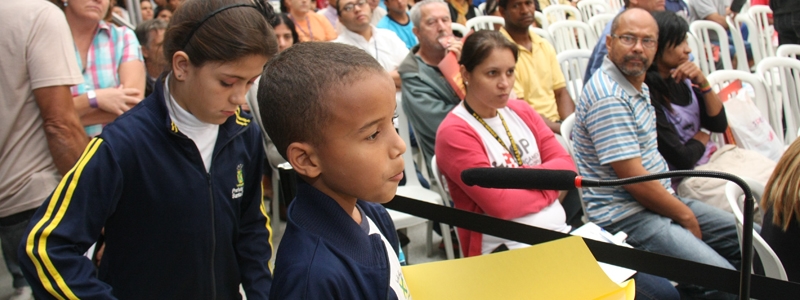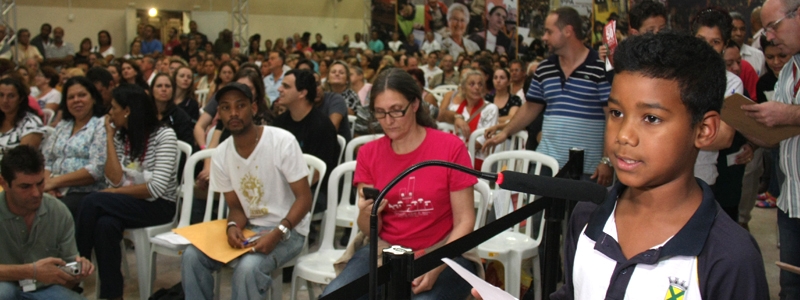Childhood Education and Collaborative Budget
Santo André City Hall
Country: Brazil
Visit Website
Innovation: Incremental
Where it happens: Community | School
Trends: 21st Century Skills | Hands-on Learning | Community Based Learning
Children participate in the formation of the collaborative budget of the city of Santo André (SP). They elect representatives who attend meetings with municipal administrators to speak about the issue and make complaints.
Country: Brazil
Visit Website
Innovation: Incremental
Where it happens: Community | School
Trends: 21st Century Skills | Hands-on Learning | Community Based Learning
Children participate in the formation of the collaborative budget of the city of Santo André (SP). They elect representatives who attend meetings with municipal administrators to speak about the issue and make complaints.
Country: Brazil
Visit Website






